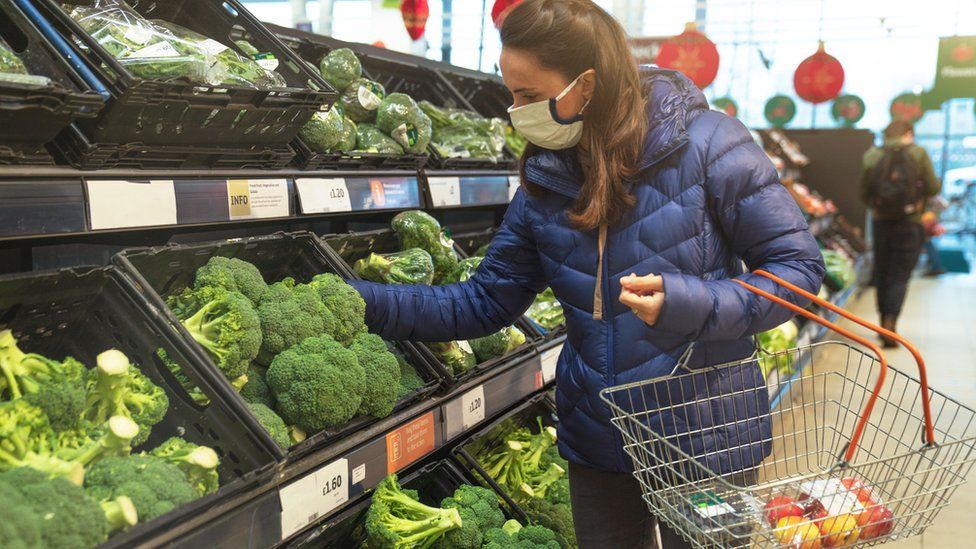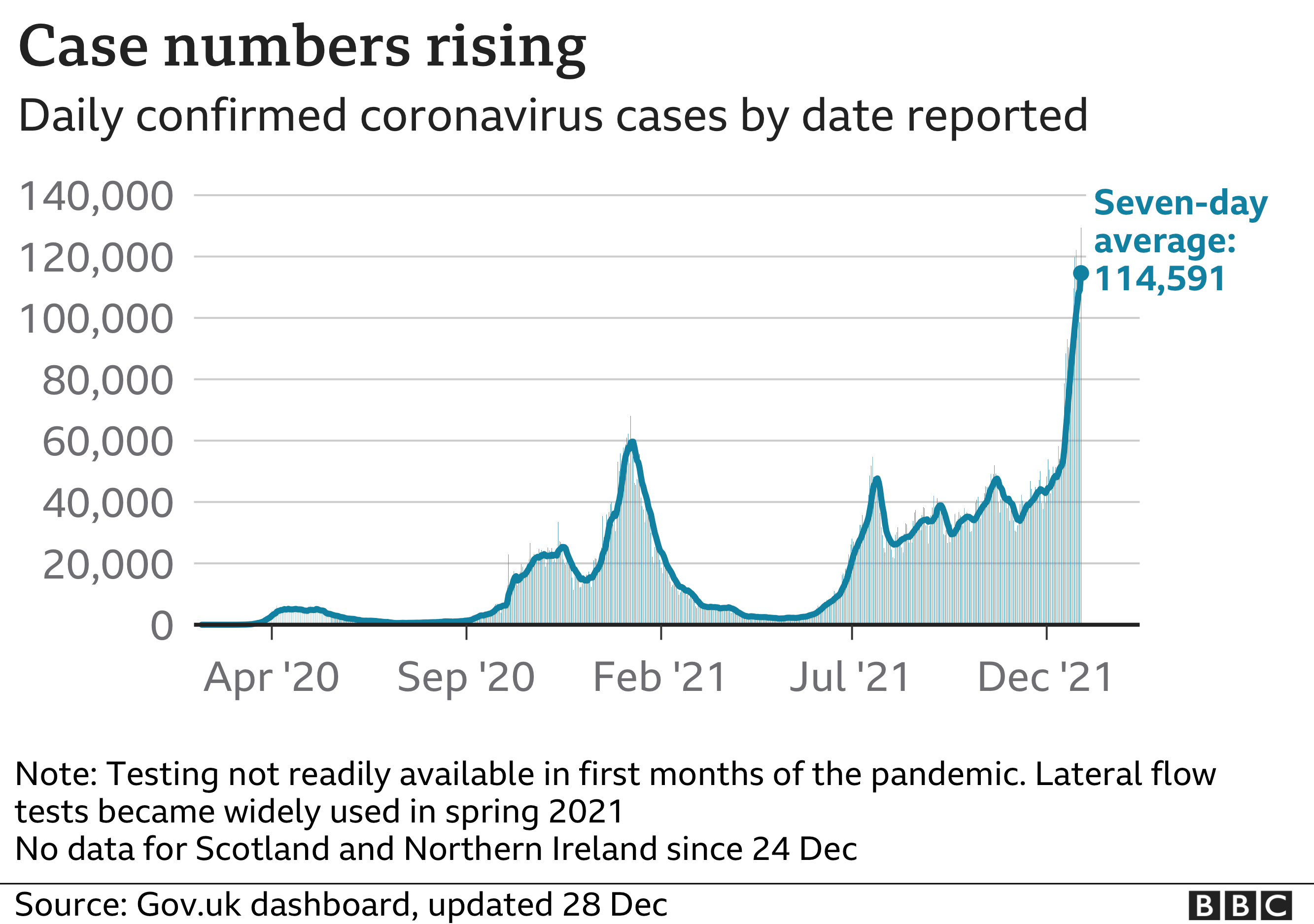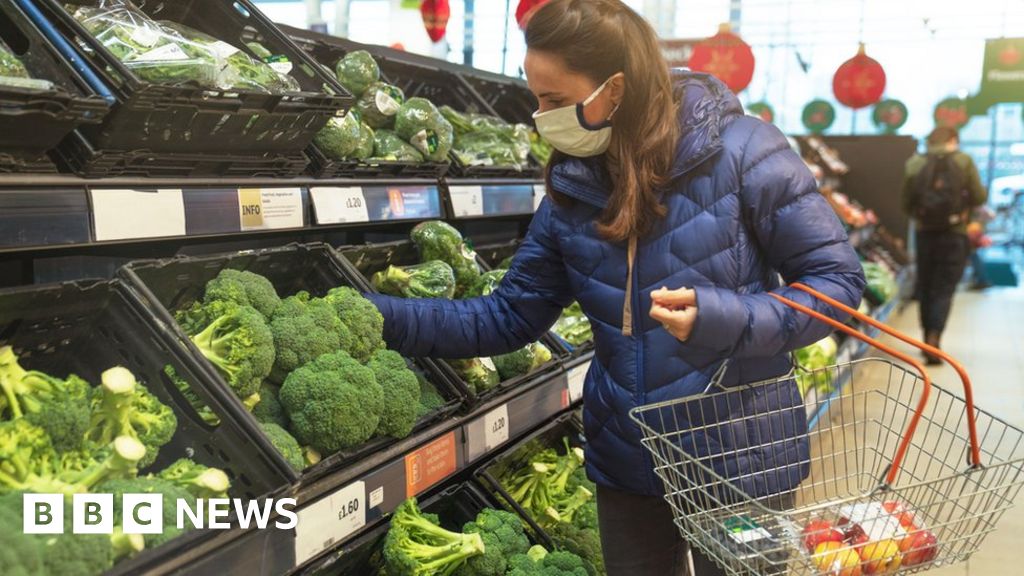
Covid cases in England have hit another record high, with a further 117,093 infections reported on Tuesday.
Some 9,546 people are in hospital with Covid, the highest since March but well below the peak of 34,000 in January.
So far, the surge in cases driven by Omicron has not led to a similarly sharp rise in hospital admissions, even taking into account the lag between infection and hospital treatment.
Full UK-wide Covid data has been unavailable over the Christmas period.
The UK government’s Covid dashboard recorded a further 129,471 cases on Tuesday – but that figure only includes data from England and Wales and reflects different time periods.
It is likely that a full national picture will only be available again in the first week of January.
The NHS has set up a fresh drive to encourage more people to get their Covid booster jabs, amid the fast-spreading Omicron variant.
The vaccination programme is sending around 650,000 text messages and 50,000 letters to people who have not yet received their booster dose, encouraging them get boosted and have a “jabby new year”.
Unlike Scotland, Wales and Northern Ireland, the government has decided against introducing new Covid measures in England ahead of the new year.
Care minister Gillian Keegan said people in England should enjoy themselves but be cautious when celebrating the new year – suggesting that they should take a lateral flow test before going out and celebrate in well-ventilated areas.
The UK Health Security Agency said that the delivery capacity for lateral flow testing kits has doubled to 900,000 a day since 18 December, due to unprecedented demand.
But the Association of Independent Multiple Pharmacies said it was frustrated that some of the stores it represented were having to wait several days for deliveries of the testing kits.
And the Royal Pharmaceutical Society is urging the public to be patient with pharmacies, saying they can only order a certain amount of tests a day.
The UKHSA said postal schedules over the Christmas period and demand may have had an impact on deliveries. It said kits could still be ordered on the government website but if they were not immediately available, then people should check back every few hours.

England saw another 1,374 Covid hospital admissions on 26 December – the highest number since February.
Not all the patients in hospital will have been admitted for Covid – latest data suggests about three in 10 have the virus but were admitted to hospital for something else.
Chris Hopson, chief executive of NHS Providers, which represents NHS trusts, said some trust bosses thought self-isolating staff would be a “bigger problem” than the number of people being treated for Covid.
And he told the BBC that while there may come a point where Covid is treated like a common cold, that should not be the case for people who work in the NHS, as they dealt with potentially “very, very vulnerable” people.
There have been calls by some scientists and business leaders for the government to follow the example of US health officials and reduce the isolation period in England for people with asymptomatic Covid, to five days. But a government spokesperson said the current isolation period – which was recently lowered from 10 to seven days – remained “critical for limiting the spread of the virus”.
They said: “There are no further changes to the isolation period planned at this time, but we keep all rules under review based on the latest health data”.
Elsewhere, Health Secretary Sajid Javid has hit out at Parkrun after the fun run organisers cancelled its events in Wales following the introduction of fresh Covid restrictions, which mean gatherings cannot happen if more than 50 people attend.
In a tweet, Mr Javid said he “can’t see how restricting outdoor exercise in this way is justified or proportionate”.
The latest figures from Wales suggested a steep rise in cases in the days before Christmas, while infections in Scotland remain among the highest recorded. No cases data has been available for Northern Ireland since 24 December.
Prof Sir John Bell, regius professor of medicine at Oxford University, told the BBC’s Today programme the decision not to introduce new curbs in England before the new year was “probably fine”, with data showing “very low” numbers of vaccinated people in intensive care.
He said the Omicron variant was “not the same disease” we saw last year, adding he thought “the horrific scenes that we saw a year ago” were “now history”.
Not all experts have agreed with the government’s decision though, with Prof Andrew Hayward – epidemiologist and a member of the advisory group Sage – saying ministers seemed to be acting “on the optimistic end of the spectrum”.

Omicron: What we know
- This variant is very contagious and spreads faster than others
- Vaccines and boosters are still essential and do a great job at protecting against severe disease
- It is milder – if you catch it, the risk of needing hospital treatment is up to 70% lower than with previous variants – but that is largely because many of us have built up immunity from vaccines and past infections rather than changes to the virus


- A VERY BRITISH SCANDAL: One of the most notorious and brutal legal cases of the 20th Century
- A STUNNING WINTER WALK: Shepherdess Amanda Owen takes us through the Yorkshire Dales

